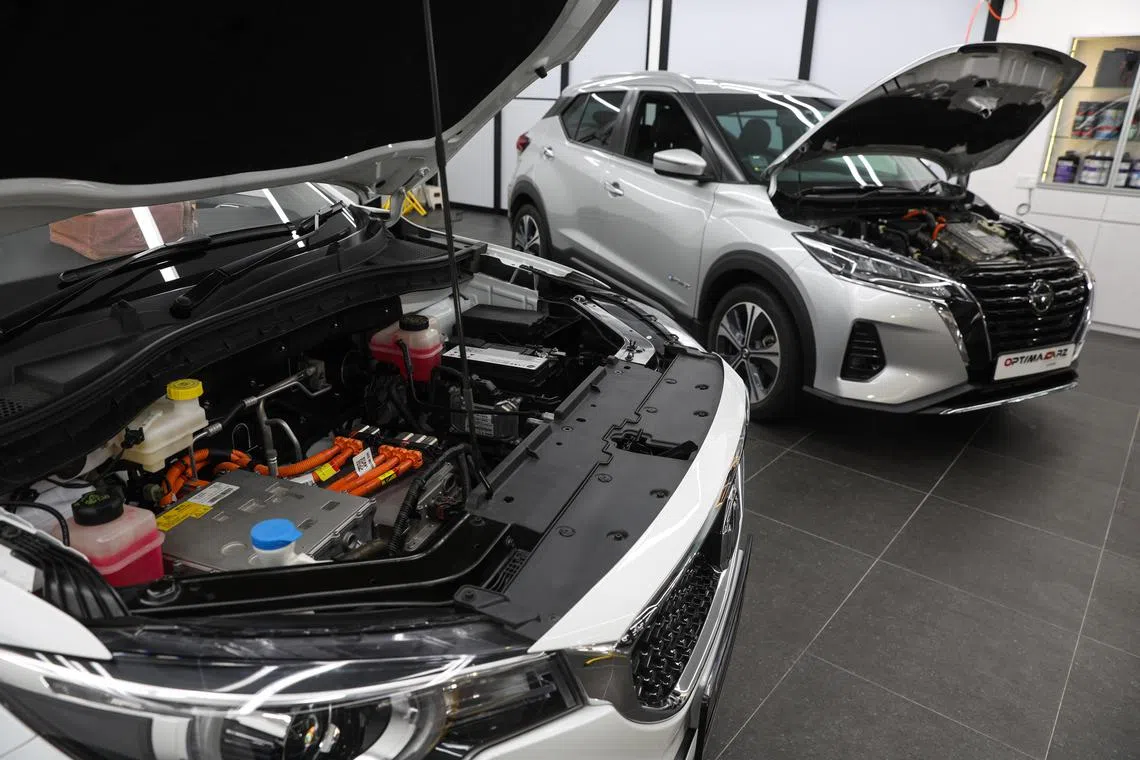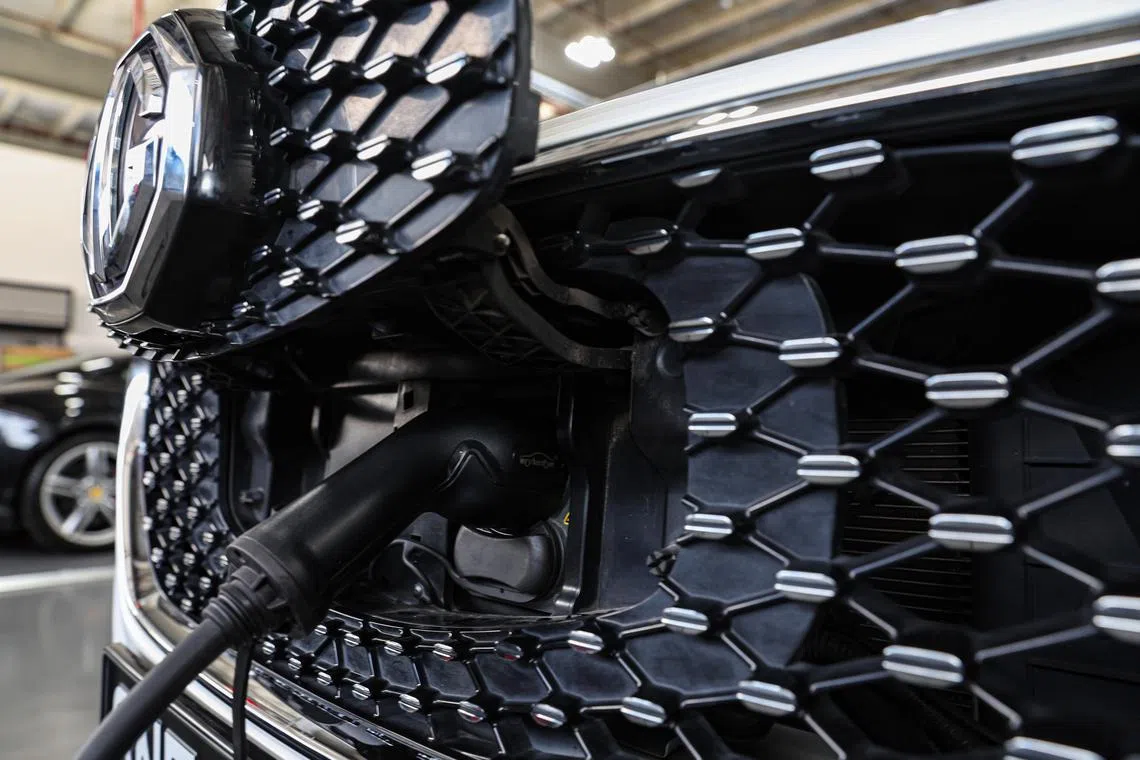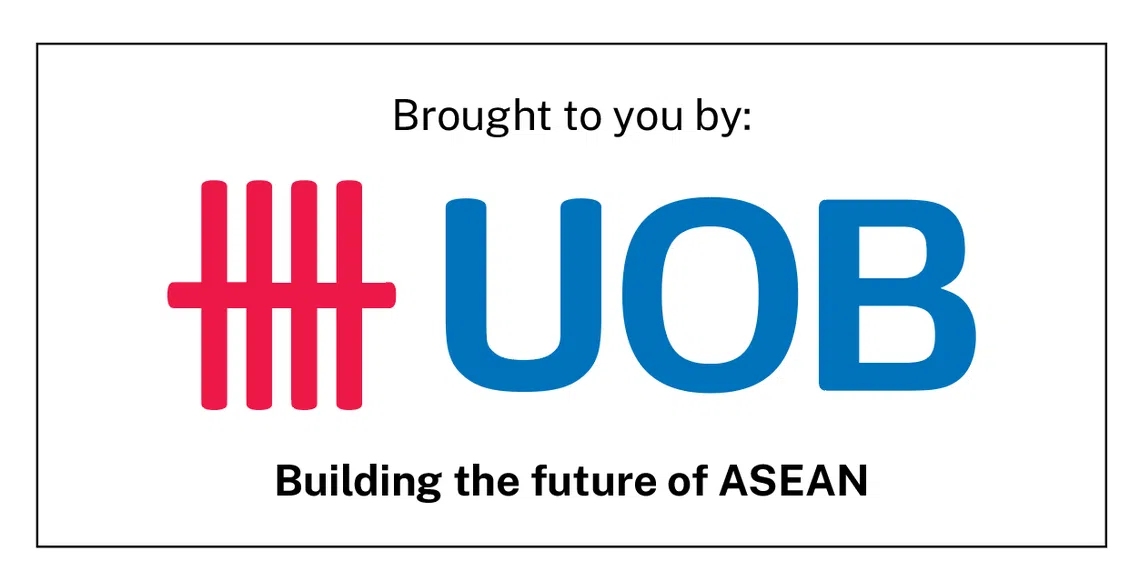Optima Carz Leasing revs up greening efforts
The vehicle rental player aims to build a 100% sustainable fleet by 2030

SOME one million vehicles on Singapore’s roads release around 6.4 million tonnes of carbon emissions a year – making up about 15 per cent of the city-state’s total emissions.
In 2019, the largest share of land transport emissions also came from Singapore’s private cars, which mostly run on internal combustion engines, said the Singapore Green Plan.
Singapore aspires to achieve net-zero emissions by 2050. To do so, the government came up with the Singapore Green Plan 2030, which includes targets to meet its goals on sustainable development.
Within the transport space, it aims to cease registrations of new diesel cars and taxis from 2025, and have all vehicles to run on cleaner energy by 2040.
This bodes well for Optima Carz Leasing (OCL), which is planning to expand its sustainable rental fleet and become fully sustainable by 2030.
“The biggest carbon footprint that we produce in our business comes from our cars,” said chief operating officer Mark Goh. It is easy, he added, to make claims about becoming more sustainable but not take action – and compared to other shops, OCL is “going beyond the norm”.
Navigate Asia in
a new global order
Get the insights delivered to your inbox.
From car repairs to rental vehicles
OCL is a subsidiary of Optima Werkz, an after-market automotive services provider established in 2012 that is also listed on the Hong Kong Stock Exchange.
In 2021, Optima Werkz rebranded its vehicle rental business as part of its growth plans. OCL also established a management team that would further develop its plans to grow its EV and hybrid vehicle fleet.
The home-grown car leasing company initially acquired its first hybrid vehicle fleet in 2016 as part of plans to supply a car-sharing platform.
Then, the company went in search of smaller, compact cars. It settled on a hybrid model that not only fulfilled the criteria, but also had lower emissions, consumed less fuel and required repair parts that were readily available.
Fast-forward to 2023: Half of the company’s rental fleet is now green, comprising 49 per cent hybrid vehicles and 1 per cent electric vehicles (EVs).
The company also plans to phase out all of its diesel vehicles by 2025, before it goes 100 per cent hybrid and electric by the end of this decade.
After operating hybrids and EVs for some years now, Goh noted that maintenance costs for EVs are lower than regular fuel cars.
For one, EVs do not come with combustion engines, reducing the need to maintain the multiple parts of such engines.

But Goh also noted that the green initiatives go beyond financial benefits – the company also sees value in being a responsible part of the community and creating a better place for future generations.
The latest National Communications and Biennial Update Report by Singapore’s National Environment Agency found that 62.6 per cent of the transport sector’s total emissions in 2018 came from diesel vehicles, and 33.2 per cent from motor petrol vehicles.
Besides owning its own hybrid and EV fleet, OCL also invested in a battery optimisation technology which allows it to prime the batteries and charge them when they are faulty, instead of wholly replacing them.
The company, which acquired the technology when it first decided to acquire more sustainable vehicles, noted that this resulted in additional cost savings, Goh noted.
The technology saves maintenance costs for the company’s own hybrid and EV fleet, since repair parts can be purchased in bulk.
It has also contributed another revenue stream for the company, which also provides battery conditioning repairs and hybrid car repairs to existing and new clients, on top of regular car workshop services.
Internally, Goh noted, the green initiatives have introduced renewed energy among his staff, as they see themselves working in a forward-looking company within the industry.
But he also noted the importance of training them about greener vehicles as the company transitions its fleet.
The company expects green initiatives will provide employees a sense of purpose and contribute to their overall job satisfaction, which should lead to higher productivity and staff retention.
No easy feat
Convincing clients to take up these green vehicles is no easy feat, though.
Goh noted the initial need to educate clients on the benefits to take up these vehicles.
Currently, he said many of OCL’s clients – consisting mostly of expatriates, small and medium enterprises and multinational corporation – have opted for hybrid cars for their family members, as these are smaller and cheaper alternatives.
Furthermore, the take-up rate for hybrid vehicles has improved substantially since the Covid-19 pandemic amid the government’s push for greener vehicles, as well as rising awareness in Singapore to reduce the emission of greenhouse gases.
According to statistics released by the Land Transport Authority (LTA), the number of fully petrol or diesel cars in Singapore fell by 1.6 per cent in 2022 from 2021.
Meanwhile, the number of petrol-electric cars grew by 20.7 per cent, while the number of fully electric cars more than doubled.
But Goh noted that the take-up rate for EVs among his clients is still low, largely due to the lack of charging points in Singapore.
It would be challenging to convince clients to switch to EVs if the estates they reside in do not come equipped with charging points, he said.
Goh hopes for the majority of OCL’s fleet to comprise EVs by 2030, but he noted that it is still dependent on customer demand and available infrastructure to support such vehicles.
For now, hybrid vehicles will likely still be the mainstay in the short term as EV infrastructure continues to build up, he said.
But EV take-up will likely pick up once more infrastructure and charging points are built by 2030, he added.

In the Singapore Green Plan 2030, the government is aiming to install chargers at all Housing and Development Board (HDB) carparks by 2025, to get all HDB towns EV ready.
It also plans to deploy 60,000 EV charging points nationwide by 2030.
For his own part, Goh is also waiting for more EV infrastructure to be built so that he can consider picking up a vehicle as well.
Additionally, while OCL has strong directions to go green, Goh noted that it is difficult for small companies to obtain financing due to the nature of the industry, where companies are often heavily geared.
It had managed to fund part of its purchase of the hybrid vehicles in 2016 after UOB first extended facilities to the company.
In 2023, UOB also extended the Green Initiative Loan to OCL, to procure more eco-friendly vehicles.
Goh said the bank’s proposed suite of financing solutions had included green solutions to its expansion plans, which includes using the bank’s Sustainability Compass to identify goals, strengths and performance gaps.
Eric Lian, group head of commercial banking at UOB, said the bank saw in OCL a “clear sustainability vision” and commitment.
“We provided advice on sustainability improvement performance targets to measure the reduction of emissions, and guidance on getting these targets verified,” Lian added. “By connecting Optima to the Compass and industry best practices, we have been able to translate insight into actions with the client and helped them progress along their business sustainability journey.”
In the meantime, Goh said, the company is promoting more sustainable alternatives for heavy vehicles as well.
OCL is converting its diesel-fuelled vans and lorries into hybrid vehicles, with plans for its sales team to pitch the new products to corporate clients and encourage wider adoption.
This comes as companies are also adopting EVs in greater numbers amid lower running costs and government subsidies.
According to LTA statistics, the number of electric goods vehicles on Singapore’s roads has risen 49.8 per cent this year as at Apr 30, while the number of electric buses rose 34.4 per cent over the same period.
The company is also setting up a team to better focus on sustainable efforts and measures to further emphasise on carbon reduction initiatives as well as staff and client education.
It noted that it will continue to encourage customers to select greener vehicles that are less pollutive and more cost-effective to operate compared with vehicles with internal combustion engines.
Meanwhile, the company expects a steady increase in environmental awareness among road users and strong support from the government and financing institutions should continue to spur interest in greener vehicles.
This is the fourth of a 5-part Green Business series, in collaboration with UOB, exploring sustainability trends across businesses and industries.

Decoding Asia newsletter: your guide to navigating Asia in a new global order. Sign up here to get Decoding Asia newsletter. Delivered to your inbox. Free.
Copyright SPH Media. All rights reserved.



